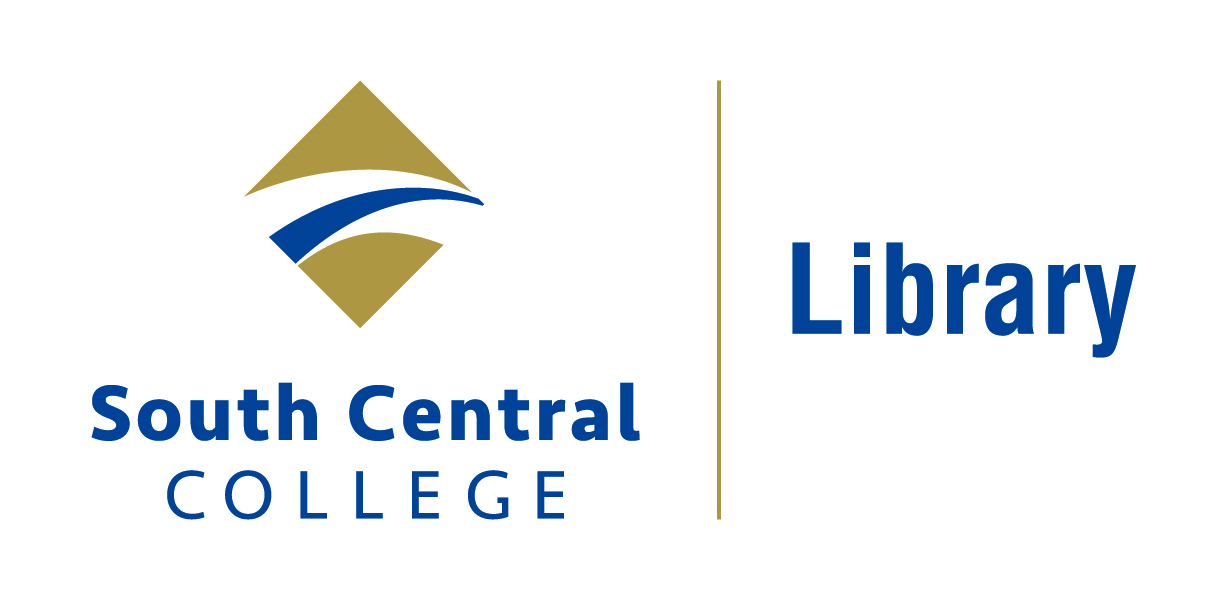1. What are Guides: AKA subject guides, library guides, or research guides?
A guide is a resource created by Library staff to help students in their research, or provide information about Library services to students and faculty.
South Central Library guides can be found here.
If you have an idea for a new guide or have resources you'd like included in an existing guide, please contact library@southcentral.edu. We welcome any and all suggestions or feedback.
2. What are Library databases?
Library databases are licensed collections of published materials: books, articles, journals, etc. These are generally exclusive to electronic materials, and significantly expand the Library's available collections. The Library's subscriptions may change over time, depending on usage, cost, and subjects covered.
Databases generally include research tools, such as citations, file export, translation or text-to-voice options, browsing capabilities, and AI-generated recommendations.
You may browse the Library's catalogs here.

3. What are Open Educational Resources (OER)?
Open educational resources are teaching, learning, and research resources that make use of appropriate tools, such as open licensing to permit their free reuse, continuous improvement, and re-purposing by others for educational purposes (UNESCO).
4. What are the A-Z Databases and Resources?
The A-Z Resources, AKA Databases A-Z, are specific resources compiled by Library staff. They consist of library-licensed databases (EBSCO, CINAHL), government agencies (FDA, USGS), digital collections (DPLA, NYPL), non-profit entities (ACLU, CDF), professional organizations (APA, MNA), and other sites containing useful information for South Central students and faculty.
These resources are also used in the library guides.
If you have a resource you'd like to share and include in A-Z, please contact library@southcentral.edu. We welcome any and all suggestions or feedback.
5. What is a peer-reviewed article?
Peer-reviewed articles, also known as scholarly or refereed articles, are:
- Are written by experts in the field
- Are written for other researchers/scholars
- Are reviewed by the scholar's peers to determine whether they are high-quality pieces of work
- Use terms and language that are discipline-specific
- Usually include in-text citations and a bibliography of cited sources
- May include graphs, charts, etc., related to the topic
- Are published by a professional organization or society, university, research center, or scholarly press
6. What is a scholarly journal?
Articles in scholarly journals typically go through a peer-review process, i.e. they are reviewed by the scholar's peers to determine whether it is a high quality piece of work. In addition, scholarly publications:
- Are written by experts in the field
- Are written for other researchers/scholars
- Use terms and language that are discipline-specific
- Usually include citations and a bibliography of cited sources
- May include graphs, charts, etc. related to the topic
- Are published by a professional organization or society, university, research center, or scholarly press
7. What is an abstract and how do I use it?
An abstract is a concise summary of an article, report, or other in-depth analysis. It should contain the purpose of the research, the methodology, results, and the conclusion. It should give the reader a concise understanding of the author's reseach and findings. An abstract is not a complete body of work.
You can use an abstract to evaluate whether the article fits your need. You can also use the abstract to find search terms to expand or constrain your research.
Be careful when you are searching for articles that the entire article is available, and not just the abstract. Some library resources only contain the abstract.
8. What is BrowZine?
BrowZine is an application that allows you to search and browse e-journals and articles held in the SCC Library catalog. Browse BrowZine or go directly into the Catalog to broase Journals by category.
9. What is Information Literacy? (ALA definition)
Information literacy is a set of abilities requiring individuals to “recognize when information is needed and have the ability to locate, evaluate, and use effectively the needed information.” (American Library Association. Presidential Committee on Information Literacy. https://www.ala.org/acrl/publications/whitepapers/presidential)
To be information literate, then, one needs skills not only in research but in critical thinking.
- Information Literacy – Welcome to ALA's Literacy Clearinghouse
10. What is Information Literacy? (UNESCO definition)
"Information Literacy empowers people in all walks of life to seek, evaluate, use and create information effectively to achieve their personal, social, occupational and educational goal.
Information literacy and lifelong learning have been described as the beacons of the information society, illuminating the courses to development, prosperity and freedom.
Information literacy empowers people in all walks of life to seek, evaluate, use and create information effectively to achieve their personal, social, occupational and educational goals. Information-literate people are able to access information about their health, their environment, their education and work, and to make critical decisions about their lives.
In a digital world, information literacy requires users to have the skills to use information and communication technologies and their applications to access and create information. Closely linked are two other related literacies: computer literacy (ICT skills) and media literacy (understanding of various kinds of mediums and formats by which information is transmitted). For example, the ability to navigate in cyberspace and negotiate hypertext multimedia documents requires both the technical skills to use the Internet and the literacy skills to interpret the information.
IFAP (Information For All Programme) is promoting actions aimed at raising awareness of the importance of information literacy and supporting projects that build the literacy skills of users."
Source: UNESCO Information for All Programme (IFAP)
https://www.unesco.org/en/ifap?hub=722
https://www.unesco.org/en/ifap/information-literacy
